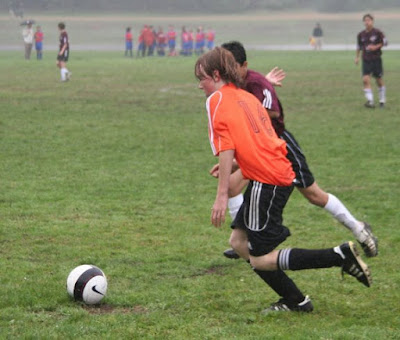
No two days ever being the same, none of us can predict with certainty what tomorrow will bring. It's Monday night in San Francisco, with some chill and a cloud cover trying to erase the memory of a warmish day.

Somehow, I'd missed that this was a holiday. Materials and messages and bills I'd prepared to mail will now have to wait until another day.

I'm always reading one book or another these unhurried days; currently it's The World Without Us by Alan Weisman. You could easily imagine from the author's premise -- that humans as a species may well vanish, and if so, the planet would ultimately regain its ecological balance, free at last of our self-destructive activities -- as a big downer.

But I find this book strangely comforting.
Of course, like every conscious being, I'd love to imagine always being alive, able to enjoy these special pleasures like watching my children develop, my grandchildren grow, my students succeed, my plants grow, and the stunning visual beauty of life on earth in its many forms continue to mutate and evolve.

On the other hand, death will eventually quiet my need to know about things that I find so hurtful...torture, rape, genocide, violence, cruelty, the breaking of so many hearts and the shattering of so many dreams.
 photo by Brian Castagne
photo by Brian CastagneIn that way, it is wonderful to read this writer's vision of how the surviving plants and animals after we depart will replant and repopulate this ruined planet that appears to be our lasting human legacy.
Of course, with our brains, it is still conceivable that we will somehow avoid the inevitable and survive another few hundred years, or even longer. But at this moment in our common story, the outlook is not good.
Most of us alive now will live out our lives not having to deal directly with the looming threats presented by global warming, but our grandchildren will not enjoy that luxury. If, as seems probable, a shrinking human population facing overwhelming ecological threats divides one against the other, hoarding precious dwindling resources, seeking what little fertile higher ground remains as the oceans rise and reclaim most of the places we now live, with mutating microbes decimating our numbers that will make the plagues of the Dark Ages a quaint memory, horrible consequences await our descendants.
It is easy to make out the outlines of a future where armed tribes hunt down and eat each other; where resurgent species of predators wait for us to weaken and die as we relentlessly roam from place to place, seeking water, food, and shelter.
It can all so easily happen, yet most of us live in a constant state of denial. It is time to change all that. Please read this book.
-30-
No comments:
Post a Comment